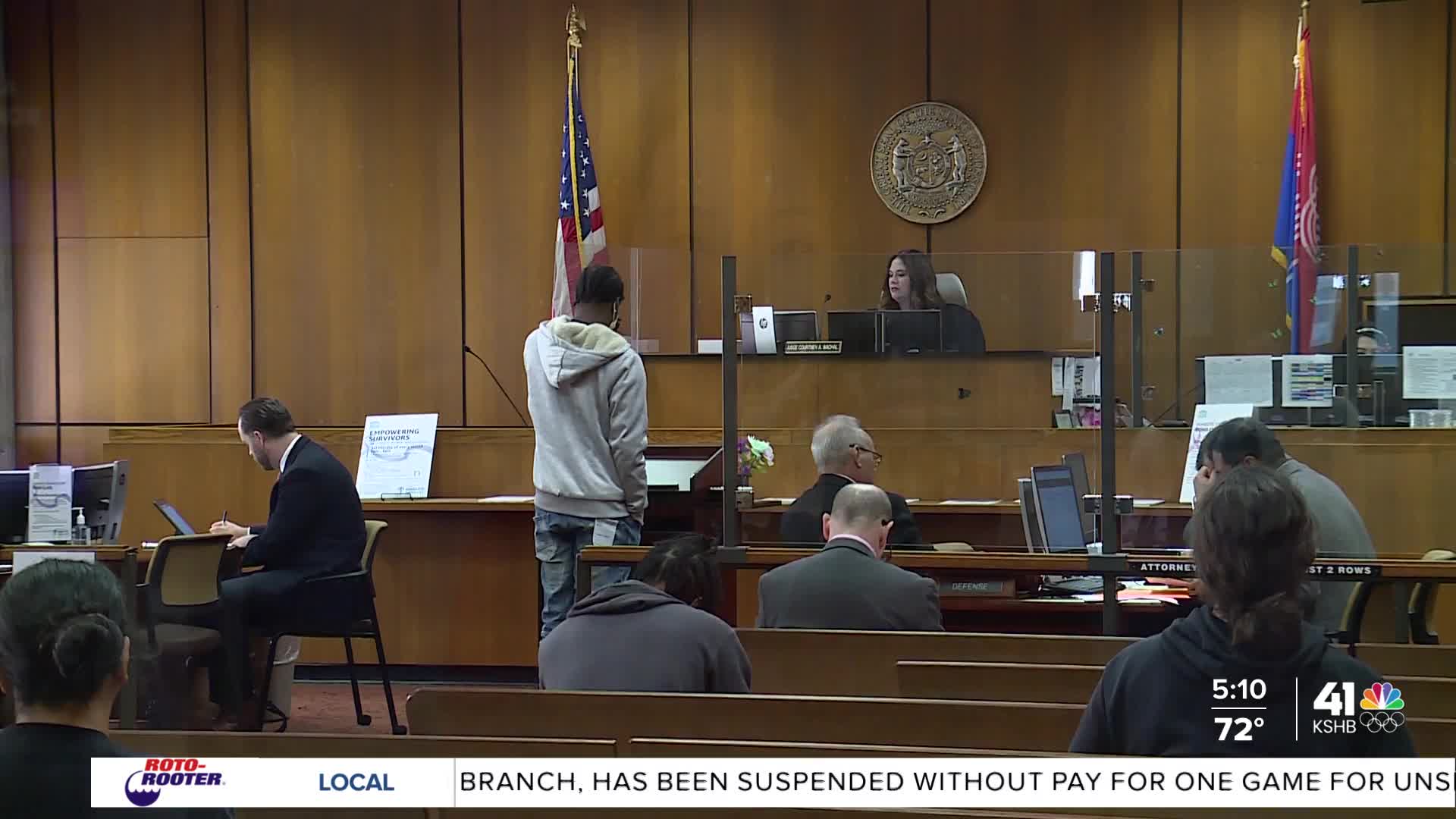KSHB 41 reporter Megan Abundis covers Kansas City, Missouri, including neighborhoods in the southern part of the city. This story is a part of her domestic violence awareness coverage for the month of October. Share your story idea with Megan.
—
Kansas City is experiencing a deadly surge in domestic violence, with 19 people killed this year. But existing court intervention programs are showing remarkable success in preventing repeat offenses.
"This year, we've already had 19 lives lost to domestic violence in the city; that's more than 50% higher than last year," said Rachel Hodgson, of domestic violence shelter Newhouse KC. "We are on track for the highest in the last decade. We are seeing stressors, we're seeing things happen that are causing people at home to take the next step of violent action that they normally wouldn't have."

Hodgson said multiple factors are contributing to the increase in violence.
"Some of it is job insecurity, food insecurity, things that have been barriers just rising right now with a lot of changes on the national level. The number of calls for help have been going up for us and all Kansas City area," Hodgson said.
Despite the rising homicide numbers, Kansas City's specialized domestic violence court system has developed programs that show promise in preventing more serious violence. These programs target people who have received domestic violence charges, offering education and intervention regardless of whether they are later convicted or not.
Judge Courtney Wachal oversees all domestic violence cases within Kansas City limits from her specialized courtroom.
"What we see so far is that it's working," Wachal said.

Prosecutors have the power to recommend classes for those with domestic violence charges — a chance to stop the cycle of violence before it escalates.
The court offers multiple programs targeting different populations: high-risk offenders, first-time offenders, those with substance abuse issues, a program for people ages 18-26, and classes for intimate partners.
"We have adapted to our caseload by trying to create programming that need the most attention or have the greatest potential to change," Wachal said. "There are separate curriculum for males and females. The reason for that is often females are incorrectly charged with DV [when] they are actually the victims."
Wachal said the program for younger offenders has shown good results.
"The results have been impressive," she said. "I think having a curriculum geared toward their adolescent brain development, providing them with resources — not just the curriculum [but] job, school, housing. That population has been receptive to the programming."
Newhouse KC works alongside the court and has a team in the courtroom every day to support survivors.
"We are focused on survivors, shelter, therapy, legal advocacy, anything someone might need. But breaking the cycle of abuse is looking at offenders and abusers, how can we be more preventative?" Hodgson said.
Antone Drone completed a 27-week program. He described the experience as transformative.
"Class is a little enlightening. Dealing with people, learning to control yourself, seeing it before it gets to that point," Drone said. "I feel like I've grown in knowing how to read situations, read people better, as far as people's temperament, my own temperament, too. I want to help let people know the class is a good class if you pay attention, and you might actually learn something about yourself and progress in a way."

Wachal explained that building trust with participants takes time, but it is essential for success.
"I guarantee if you would have talked to Drone at the beginning of the docket, he would have said this judge just wants to put me in jail like every other judge," Wachal said. "It took almost two years to get him to the place where he trusts us, where he knows if he's doing all he needs to do, that we are going to honor that."
Drone encourages others who might benefit from the program to seek help.
"If you feel like you have an anger problem, you should talk to somebody. That's half the battle, talking to someone, expressing yourself," Drone said.

The statistics show the programs are working.
Over the last two years, nearly 300 people signed up and 264 completed the first-time offender class. Less than 6% have returned with new charges.
DV Bond Class stats for first-time offenders as of April 21, 2025
- 299 defendants signed up
- 264 (91%) successfully attended
- 10 (3%) are currently scheduled to attend
- 26 (9%) failed to attend/complete
Case outcome
- 177 had their case(s) dismissed (67%)
- 52 defendants’ cases were still pending (20%)
- 21 defendants were placed on probation (8%)
- 14 defendants had warrants for failure to appear (5%)
Relationship sexual violence docket data since July 2022
*Does not include participants who refused the offer
- 30 participants (29 males, 1 female)
- 8 completed diversion
- 7 warrants
- 11 active
- 3 discharged for new DV charges
"Our data highlights both the number of new domestic violence offenders and how many we’ve been able to reach through this educational intervention," said Nephateri Hill, domestic violence coordinator for the Probation and Specialty Courts Division. "The outcomes demonstrate the effectiveness of the DVI Bond Class and its role in our overarching goal: reducing domestic violence and recidivism."
Hill said the court takes pride in its "innovative approach to prevention and intervention.

"While we recognize that we cannot reach everyone, for those we are able to educate, prosecute, or supervise, we remain diligent, intentional, and deeply committed to promoting safety and accountability across our community," she said.
Judge Wachal hears 200 domestic violence cases daily, with charges ranging from pushing to strangling. The maximum punishment is six months in jail, but not everyone can be incarcerated.
These programs were designed to educate people about domestic violence before it escalates to something even more dangerous.
"The curriculum has been remarkably successful," Wachal said.

This story is part of a month-long series covering domestic violence in the Kansas City area. Here's Megan's previous coverage on the heavy caseload in the court system, successful intervention programs in Kansas City and the dangers law enforcement officers face when responding to domestic violence calls.
—
This story was reported on-air by a journalist and has been converted to this platform with the assistance of AI. Our editorial team verifies all reporting on all platforms for fairness and accuracy.




